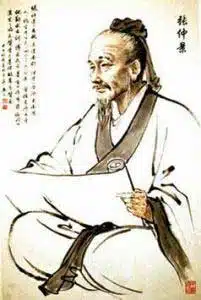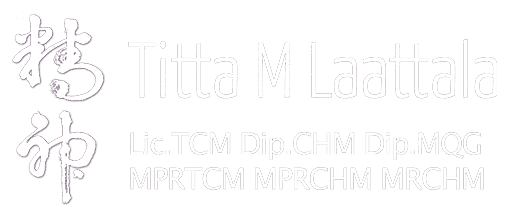What is TCM – Traditional Chinese Medicine?
What is TCM – Traditional Chinese Medicine
TCM is an ancient and sophisticated medical system which originated in China several thousand years ago, but has increasingly spread throughout the world. It arrived in the West in the 1970’s and is steadily gaining recognition and slowly becoming integrated into mainstream health care.
TCM is well established and well documented, and it is the principle form of medical care available to a large portion of the world’s population.
Positive Health Oriented
One of the most attractive and distinctive features of TCM is that, from its earliest days, it has emphasised the promotion of positive health and has not restricted itself merely to the treatment of disease. TCM aims to go further, and improve the person’s health so that they no longer do not get ill. In other words, TCM is a ‘preventative’ form or medicine.

Safe
In the hands of a fully qualified professional practitioner, TCM is safe and entirely without harmful side-effects. It has stood the test of time over two thousand years and has not been found wanting.
Note that in the UK, the practice of TCM does not have statutory regulation. This means that it is up the the patient seeking treatment to verify that the practitioner they wish to consult is indeed adequately qualified.
Effective
It is safe to say that there is no sick person who cannot be helped by TCM treatment, but only after a full traditional Chinese medical diagnosis has been carried out.
The extent and speed of this help will naturally depend upon a number of considerations, such as the nature of the complaint and the length of time it has been there, as well as the frequency and type of treatment received.
Suitable for Everyone
Every age, gender and condition is suitable for TCM treatment. Children can attend the clinic with their parents or guardians, and pregnant women can be greatly assisted throughout the pregnancy, delivery and nursing.
TCM is also compatible with other systems of medicine, such as Western medicine, and can be beneficial in managing the side effects of essential medical treatment such as chemotherapy.

TCM Diagnosis
A thorough diagnosis is a prerequisite for any TCM treatment. It seeks to uncover and consequently treat the ‘root cause’ behind the presenting symptoms, and identify any contributing factors that might be aggravating the situation.
Examining the patient’s lifestyle, physical and emotional environment and food and drink intake is essential to identify factors in the patient’s life and habits that might be triggering or even causing the whole problem.
Looking at the tongue and taking the pulse are diagnostic techniques specific to TCM, and provide the practitioner additional information about the health of the patient.
In looking for the root cause for the condition, if and when possible, TCM aims to ‘turn the tap off’, hence eradicating the symptoms and preventing them from coming back. This is why TCM is often said to be ‘curative’.
TCM Treatment Methods
TCM employs a variety of treatment methods, the main ones being acupuncture and Chinese herbal medicine. These two are also the best know in the UK. All TCM treatment methods can be combined with each other and with other systems of medicine.
Acupuncture
Involves the insertion of extremely fine, pre sterilised, stainless steel needles at pre-determined points on the body surface to restore internal health.
Chinese Herbal Medicine
Uses Traditional Chinese Medical ingredients such as roots, leaves and flowers which are combined according to classical Chinese Prescriptions to treat the client’s condition.
Medical Qigong
Is the most ancient and most sophisticated form of TCM. It is rare and little known and often confused and conflated with ‘Health Qigong’ or ‘Health Giving Qigong’.
Dietary Therapy
This TCM specialism involves careful monitoring of food and drink intake in order to help to eliminate disease and speed recovery.
Yangsheng Medical Lifestyle Advice
Forms a crucial part of TCM treatment and concentrates on eliminating factors in the patient’s life style or daily living activities that contribute to the cause or prolongation of the health complaint.
Cupping
Is an adjunct therapy and uses a specialised technique for the treatment of musculoskeletal problems, respiratory conditions and anxiety.
Moxibustion
The use of a burning herb Artemisia Vulgaris aka Mugwort, “moxa”, often accompanies acupuncture treatment. It can be used for example in the treatment of period pains and infertility. A well known application is that of turning a breech baby.

